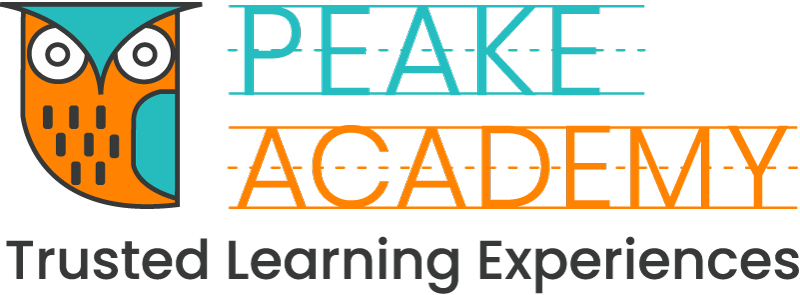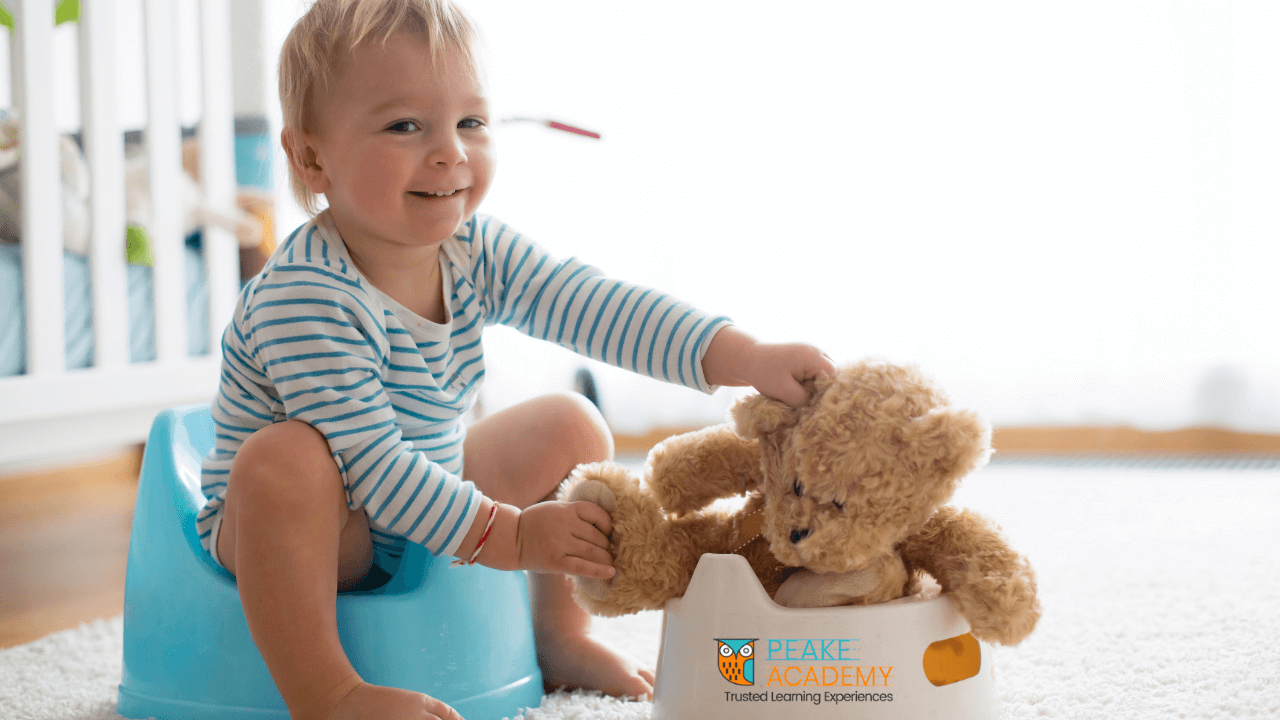Appropriate Expectations For Older Toddlers
Every toddler experiences their own stages of development with manners, rule-following, and meeting the expectations of their parents. During this stage of parenting, you’ll find that your older toddler is demanding to be more independent and slowly learning that the world doesn’t revolve around them.
Independence
Every older toddler parent has heard it – “Me do it!” Between 18 months and 3 years, independence becomes a compulsion. The interest in doing things for oneself is replaced with demands to do it “myself” – even if it takes three times longer and doesn’t get done quite right.
Beyond the toddler wanted to do things on their own, another phenomenon takes place. Your older toddler will want to do everything you do.
If you are making a grocery list, he/she will want to make a list. If you are mowing the yard, your toddler will want to be right there with you. This will happen regularly while your older toddler is at home, in a childcare setting, or a digital preschool setting. They will want to do what their elder is doing no matter what it is.
Independence is tied to doing the things older toddlers see going on in their world – particularly the things they see parents doing. They are identifying with the roles parents have as well as the interesting things they do.
Modeling emerges as a primary learning strategy. For example, if you walk out carrying your lunch box or briefcase, your toddler wants one, too!
While independence is something that’s yearned for during this stage in childhood, you can’t always count on your toddler’s emerging independence. Sometimes independence is a mechanism to test limits. For example, your older toddler may walk by your side to the car day after day without holding your hand. Then one day, he/she may take off running, catching you completely off guard! This kind of independence is oppositional or negative and must be met with firm follow-through.
Self-Control
Older toddlers are beginning to exhibit some self-control, but it is still quite unreliable.
Typically, older toddlers have learned to control behaviors that have been met consistently with predictable responses. For example, if Mom has put away her toddler’s plate every time he/she begins to play with food, the toddler will only play with food when he/she is finished eating. If behaviors have not been met consistently with predictable responses, the older toddler may still be testing and experimenting with the limits.
Toileting – The Ultimate Control Issue
Toilet training becomes a big issue for older toddlers (around 2 years of age). Because how the process of toilet training is conducted has a tremendous impact on the child’s development, parents need to be aware of the factors which indicate that a child may be ready to begin to train him/herself.
To benefit from toilet training, children must be able to control bladder and sphincter muscles.
This means that they can recognize the signs of a full bladder or bowel and control the speed of the elimination process. Motor skills must reach this milestone before any effort to train a child is initiated.
A child’s language should also reach a certain developmental level before toilet training begins.
Older toddlers should be able to make their needs and wants to be known before it is too late. Children whose vocabularies are 500-700 words may be ready if their vocabulary includes words like “more milk,” “go bye-bye,” “mine,” “no,” “hurt,” “go potty,” “dirty diaper,” etc.
Children also need a certain level of cognitive development to be ready to train. They need to understand that elimination is their responsibility. They need to understand object permanence (that things that can’t be seen are still there) and simple causal relationships.
Emotional development also needs to be at a certain developmental level. Children need to have the confidence to try to control elimination. They need a wide range of positive experiences that give them a good self-concept. They need the feeling that “I’m a great child” as this will enable children to continue to try seemingly difficult tasks.
Parents know that each of these developmental milestones is highly individual. For example, a child can have language skills but not motor skills. Parents also must recognize that gaining control over the bladder and bowels takes time. It will never be accomplished overnight or by a predetermined age.
Early signs of readiness for toilet training might include telling you when a diaper is dirty, expressions of anticipation of urination or defecation, either verbal or non-verbal, and regularity of bowel movements.
Which comes first, bladder, or bowel control?
Bladder control is much harder to achieve than bowel control. Even after bladder control is beginning to take hold, children need frequent reminders and opportunities to empty their bladders before they are so full that accidents occur.
Using the potty at the same time will help with this process. Consider having your child try to go potty first thing in the morning, after breakfast, before bath time, and before bedtime.
Having a potty routine will help tremendously in the process of toilet training a preschool child. The same will work when parents as their older toddlers if they need to use the bathroom when their parent uses the bathroom.
What if potty accidents occur?
Accidents should be treated as a normal occurrence well into the fourth year. When children have accidents, clean them up, and put on clean dry clothes. Humiliation or threats to return them to diapers won’t work. Reward successful bowel and bladder control, and under-react to accidents.
As children get older, they may be able to help you clean them and change their clothes, turning a potentially negative experience into a positive one. Similarly, expect your child’s preschool teacher to report successes and overlook accidents. Wet clothes in the cubby to take home for replacement is evidence enough of toileting accidents. Accidents are normal and expected, particularly if children are excited, if family circumstances change, or if the day has been particularly busy.
T. Berry Brazelton, a well-noted pediatrician, cautions parents not to start toilet training too early.
Most children are trained during waking hours between 21/2 to 3 years of age. Starting too early or putting lots of pressure on a child to train may only postpone the process. This is an area that parents can support but must turn over to the child to control.
Expectations with Friends
A wonderful new skill is emerging in older toddlers. They are beginning to develop true friendships and learn about being a friend.
Having someone to play with at preschool or in a childcare setting becomes a powerful drive that helps older toddlers begin to learn more social skills.
Parents are often pleased to see children exhibiting sympathy, empathy, and altruism as the child continues to expand their interactions at digital preschool, childcare, and at home with friends. These new skills increase the chance that your children will get along better in groups.
Learning Academic Skills
Older toddlers are often fascinated by everything in their world. They want to know how things work. Their interest in reading books becomes even stronger during older toddlerhood. Along with this intense interest in books and being read to comes a wonderful skill.
Toddlers learn to “read” pictures and signs and to connect pictures and sounds to actions. This “reading” may not be adult-like, but it is the same process. It involves understanding the meaning of symbols as opposed to understanding the meaning or appearance of words.
It still is not time to push discrete academic skills upon your child. Spend your time helping your child “read” signs and symbols that are part of his/her world (for example, stop signs, McDonalds®, Kmart®, or Cheerios®).
Give your older toddler lots of manipulative items to count, sort, and build with. Support emerging peer relationships and skills by having your older toddler attend digital preschool or go to a childcare center.
Watch how your child makes sense of the world.
Before you know it, your child will have a vocabulary of many words, know how to be a friend, and understand how he/she is expected to behave. These are the foundations upon which academic skills will emerge later. If you’re interested in learning more about parenting, expectations, and stages of the older toddler please join our Parent Advisor private Facebook group today.
Thank you for reading!
We are so passionate about supporting the emotional health of children and helping you as their parents and carers.
We are giving away FREE My Alphabet of Affirmations Card.
Get your freebie when you join our Weekly Newsletter. You will be the first to know when we have new contents and freebies














